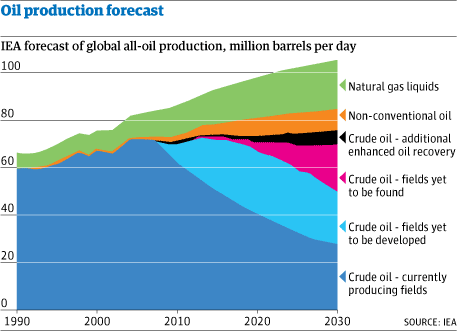 Over the last six weeks I've had a dozen meetings in various guises for Scrutiny - I'm now involved in two scrutiny inquiries which I think I've mentioned on this blog - domestic energy efficiency and planning delegation plus the usual work of scrutiny and the quarterly meetings with two Heads of Service. More of all that in future blogs but for this post I wanted to cover peak oil...
Over the last six weeks I've had a dozen meetings in various guises for Scrutiny - I'm now involved in two scrutiny inquiries which I think I've mentioned on this blog - domestic energy efficiency and planning delegation plus the usual work of scrutiny and the quarterly meetings with two Heads of Service. More of all that in future blogs but for this post I wanted to cover peak oil...Photo: Planning Delegation Scrutiny meeting interrupted on pink day by staff raising money - very welcomed scone, cream and jam!
You see at last within Stroud District Council at some of those scrutiny meetings and in conversation with officers there seems to be a shift occurring and a move to more understanding there is a threat posed by Peak Oil - it is a long while since Prof Richard Heinberg talked to Stroud District Council's Cabinet in 2007 about Peak Oil - I still think we have a long way to go to translate it into policy but there is a shift and the latest news items on oil reserves can only help...
The Guardian for example had an article, "Key oil figures were distorted by US pressure, says whistleblower" - see here and graph below - basically the news is that a "senior official claims the US has played an influential role in encouraging the watchdog to underplay the rate of decline from existing oil fields while overplaying the chances of finding new reserves." This is seriously serious stuff.

The IEA has repeatedly reduced it's predictions - in 2005 they say oil supplies could rise as high as 120m barrels a day by 2030 then it was 116m and then 105m last year. The claim is that in reality "Many inside the organisation believe that maintaining oil supplies at even 90m to 95m barrels a day would be impossible but there are fears that panic could spread on the financial markets if the figures were brought down further."
The trouble is that the British government, among others, always uses the IEA statistics so argue that there is little threat to long-term oil supplies. John Hemming, the MP who chairs the all-party parliamentary group on peak oil and gas, said in the article that the revelations confirmed his suspicions that the IEA underplayed how quickly the world was running out and this had profound implications for British government energy policy.
Meanwhile as far back as 2004 people like Colin Campbell, a former executive with Total of France have warned: "If the real [oil reserve] figures were to come out there would be panic on the stock markets … in the end that would suit no one."
Another report last month also argued that Peak oil before 2020 was a 'significant risk' - see Ecologist article here. experts. The report, entitled 'Global Oil Depletion: An assessment of the evidence for a near-term peak in global oil production', comes from the UK Energy Research Centre, an independent group funded by the Research Councils, whose mission is to resolve contentious technical issues and deliver clear guidance for policymakers.
The report puts the excitement over recent ‘giant’ oil discoveries into perspective and directly contradicts the British government’s position. It also warns that failure to recognise the threat of peak oil could undermine efforts to combat climate change.
The key discovery for example last month was BG’s Guara field, containing 2 billion barrels of recoverable oil and was lauded as a ‘supergiant’, prompting some pundits to claim such finds would banish peak oil for decades. However, the UKERC argues that each additional 1 billion barrels delays peak oil by less than a week. To postpone the peak by a year would take 7 times what was discovered in 2007. We’re unlikely to explore our way out of this.
The Government and indeed local authorities need to wake up to oil depletion and start planning, because it’s going to mean major changes infrastructure, investment and lifestyles. Stroud may have started to wake up but we are a long way from the policies needed.
Christopher Patey, chairman of the Oil Depletion Analysis Centre, and a former executive with Mobil, said of the report: "This excellent report exposes the British Government’s position on peak oil for what it really is – obstinate denial in the face of the growing evidence, and a reckless gamble on all our futures".





2 comments:
George Monbiot: I don't know when global oil supplies will start to decline. I do know that another resource has already peaked and gone into free fall: the credibility of the body that's meant to assess them. Last week two whistleblowers from the International Energy Agency alleged that it has deliberately upgraded its estimate of the world's oil supplies in order not to frighten the markets. Three days later, a paper published by researchers at Uppsala University in Sweden showed that the IEA's forecasts must be wrong, because it assumes a rate of extraction that appears to be impossible.
Guardian 17th Nov 2009
http://www.guardian.co.uk/commentisfree/2009/nov/16/oil-running-out-madman-sandwich-board
In the end I sent some of this info around the list of all District councillors - some interesting responses incl denial - another article in The Observer today makes for interesting reading:
http://www.guardian.co.uk/business/2009/nov/29/peak-oil
Post a Comment